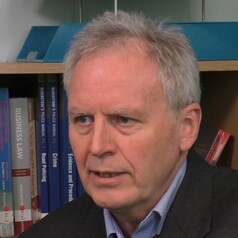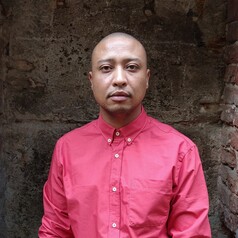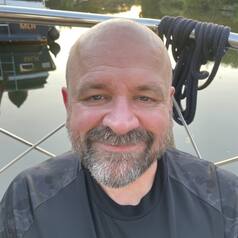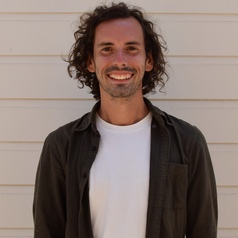
Dr Yukteshwar Kumar
Course Director, Department of Politics, Languages & International Studies, University of Bath
Dr. Yukteshwar Kumar, a distinguished sinologist and Senior Academic, currently serves as the Course Director of the Chinese stream at the University of Bath. Beyond his academic contributions, Dr. Kumar has made history as the first Asian Deputy Mayor of Bath, showcasing his dedication to bringing about meaningful change. Additionally, he holds the distinction of being the first individual of Indian heritage elected as a councillor in the city of Bath, UK.
With over 31 years of experience in the Higher Education field, including at Tianjin, Beijing, Changsha, Santiniketan, Delhi University, and JNU in India, Dr. Kumar is a recognized expert on China affairs. He has been a Nehru Fellow at Peking University and has received numerous awards, scholarships, and honors. Fluent in Chinese, English, Hindi, and Bengali, he recently translated a book from Chinese into English, Hindi, and Bengali. Dr. Kumar has actively contributed to electronic and print media, authoring numerous articles, book chapters, and research papers.
In recognition of his influential contributions, Dr. Yukteshwar Kumar was chosen as the most influential person in the city by the Bath Chronicle in 2020. His impact extends to philanthropy, as evidenced by the establishment of a library in his name in Bihar in November 2023.
Less ![]()

Dr. Dalila Gharbaoui
Postdoctoral Climate Crisis Research Fellow, University of Canterbury
Dalila Gharbaoui, Ph.D. is a Postdoctoral Research Fellow at the University of Canterbury part of the Pacific Ocean and Climate Crisis Assessment supported by the New Zealand Ministry of Foreign Affairs. Dalila holds a Ph.D. in Political and Social Sciences from the University of Liege (Hugo Observatory on Environment, Migration and Politics) and a Ph.D. in Pacific studies from the University of Canterbury with the support of the Marsden Fund Te Pūtea Rangahau a Marsden. Dalila’s PhD thesis focused on climate change, planned relocation, and land governance in the Pacific region. She authored numerous research works related to climate change, adaptation and (im)mobility in the Pacific region, Africa, and Europe. Dalila has actively participated in various international, national, and regional discussions on human mobility, resilience and climate change, providing her expertise on topics such as community retreat, planned relocation, including at the United Nations Framework Convention on Climate Change (UNFCCC). Previously, Dalila worked as a researcher in policy and research teams and as consultant for organizations such as the United Nations High Commissioner for Refugees (UNHCR), the International Organization for Migration (IOM), the United Nations Convention to Combat Desertification (UNCCD), the United Nations University Institute on Comparative Regional Integration Studies (UNU-CRIS), International Crisis Group and Amnesty International.
Research profile:
https://profiles.canterbury.ac.nz/Dalila-Gharbaoui
https://www.hugo.uliege.be/cms/c_4870327/en/hugo-dalila-gharbaoui
Less ![]()

Dr. John Fox
Senior Lecturer in Police Studies, University of Portsmouth
Dr John Fox is a senior lecturer and doctoral supervisor at the School of Criminology and Criminal Justice, University of Portsmouth, UK, where he teaches students at all levels in the subjects of criminology, criminal justice and policing studies. His main research interests include police investigation, homicide and police occupational culture.
MSc Criminology and Criminal Justice - University of Surrey
PhD Sociology/criminology - University of Surrey
Less ![]()

Dr. Julia Palik
Senior Researcher, Peace Research Institute Oslo (PRIO)
I am a Senior Researcher at the Peace Research Institute Oslo (PRIO). I research disarmament, demobilization, and reintegration (DDR) programs' impact on peace and the gendered aspects of these programs. Currently, I am leading a 3.5-year-long project on the effect of disarmament on conflict recurrence (DISARM), funded by the Norwegian Research Council.
Less ![]()

Dr. Louise Boronyak
Research Affiliate, University of Technology Sydney
Louise is a Wildlife Campaigner with Humane Society International Australia. She is a wildlife coexistence advocate and researcher with a passion for wildlife conservation, welfare and environmental justice. In her research she identifies holistic, compassionate and integrative approaches to coexist with wildlife and support local communities. Her interdisciplinary research spans social science, natural resource management, climate adaptation, animal welfare and conservation sciences.
Louise completed her doctorate in 2022. Her thesis explores the critical issue of human-animal coexistence with a focus on human and large carnivore interactions in production landscapes in the United States, South Africa and Australia. Her research aims to inform innovative government policies and practices and document evidence-based solutions that increase the resilience of landscapes, livestock and livelihoods while simultaneously conserving carnivores. This work illustrates the essential pathways to transform the paradigm from conflict towards coexistence that is both feasible and beneficial for people, animals and agricultural enterprises.
Louise is an associate of the University of Technology Sydney where she worked for 14 years on sustainability issues such as biodiversity conservation, wildlife management, climate change adaptation and natural resources. She was a co-founder of the world's first Centre for Compassionate Conservation (CfCC) where she explored ways to reduce threats to wildlife from human intolerance in production landscapes and from emerging diseases.
Less ![]()

Dr. Ronald Premuroso
Accounting Instructor, Western Governors University School of Business
Less ![]()


Drew Cingel
Associate Professor of Communication, University of California, Davis
Drew Cingel studies the interaction between human development and media effects. He is particularly interested in understanding how facets of child and adolescent development influence media choice and the effects of exposure to media. He has worked with different media companies, such as Common Sense Media, and primarily uses experimental and survey methodologies. He addresses these questions of interest through research in his lab, a naturalistic, living room setting equipped with traditional and new media technologies.
Less ![]()

Drew Dawson
Director, Appleton Institute, CQUniversity Australia
Drew established the sleep research group at the University of Adelaide in 1992. In recent years Drew has broadened his research interests to include safety science, applied psychology, human factors and safety management systems, and cultural anthropology. Having built a broad multidisciplinary team, Drew formed the Appleton Institute in January 2012.
Less ![]()

Drew Franklin
Senior Lecturer in Marketing, University of Auckland, Waipapa Taumata Rau
Drew is a Senior Lecturer in Marketing at The University of Auckland Business School and also serves as the Business School’s Associate Dean of External Engagement. Before completing both his Master’s and Doctoral degrees at Auckland University of Technology, Drew enjoyed a 12-year career in global business and marketing roles, including sales, marketing, and business development responsibilities in the North American, Western European, Australasian, and developed Asia markets.
Drew’s current research mainly focuses on business-to-business marketing, marketing strategy, and relationship marketing practice, specifically focusing on trust and trust repair. Drew is also interested in industrial marketing functions, such as professional selling and sales management, industrial pricing practice and business buying behaviour. Other current research projects Drew is involved in are seeking to understand the role of technology in business relationships, such as artificial intelligence (AI) and other automated or augmented technologies, and how best we can adopt these tools in practice.
Less ![]()


Drew Kassel
PhD Student in Mechanical Engineering, The University of Texas at Austin
Drew comes from the north, i.e., Wisconsin. He grew up in Milwaukee and graduated high school in 2017. He moved out to Madison for undergraduate studies and then graduated from the University of Wisconsin-Madison in 2021 with a Bachelor’s of Science in mechanical engineering. During his undergrad years, he began his research career as an undergrad assistant in a lab that studied fluid dynamics and the heat transfer properties of two-phase flow. Once graduated, he moved to Austin in the summer of 2021 to begin working toward a Ph.D. at The University of Texas at Austin within the Webber Energy Group. Drew’s research interests are in big picture energy systems and cleaning up the power grid. Currently, he is researching grid resilience scenarios in extreme weather events by studying what efforts are needed to prepare for increasingly probable extreme weather. The methods involved in this research are robust capacity expansion models of the ERCOT power grid infrastructure that can be modified to explore specific resilience plans. These plans typically involve grid interconnections, distributed energy resources, and storage options at utility and distributed scales. Ultimately, Drew will study the interactions between these three options on a case by case basis to determine what combinations of them might work in practice.
Less ![]()


Drew Shindell
Drew Shindell is a Professor of Climate Sciences at the Nicholas School of the Environment, Duke University. From 1995 to 2014 he was a scientist at the NASA Goddard Institute for Space Studies in New York City. Dr. Shindell taught atmospheric chemistry at Columbia University for more than a decade. He earned his Bachelor's degree at UC Berkeley and his PhD at Stony Brook University, both in Physics. His research concerns natural and human drivers of climate change, linkages between air quality and climate change, and the interface between climate change science and policy. He has been an author on >175 peer-reviewed publications, received awards from Scientific American, NASA, the NSF and the EPA. He has testified before both houses of Congress (at the request of both parties). He chaired the 2011 UNEP/WMO Integrated Assessment of Black Carbon and Tropospheric Ozone and was a Coordinating Lead Author on the 2013 IPCC Assessment. He chairs the Scientific Advisory Panel to the Climate and Clean Air Coalition of nations and organizations.
Less ![]()

Drew M. Dalton
Professor of Philosophy, Dominican University
Drew M. Dalton is a Professor of Philosophy at Dominican University. He received his Ph.D. in 2006 from the University of Leuven (BE) through a partnership with both the Husserl Archives and the Center for Social and Political Philosophy. His research and teaching interests are primarily in Phenomenology, German Idealism, Speculative Materialism, and Psychoanalysis especially as they address questions of lasting social, political, and ethical concern. His first book, "Longing for the Other: Levinas and Metaphysical Desire," (Duquesne University Press, 2009) integrated these interests through an extended exploration of the roots and implications of Emmanuel Levinas' concept of desire, especially as it relates to the emergence of ethical concern and informs our understanding of the origins of social conflict. His last book, "The Ethics of Resistance: Tyranny of the Absolute," (Bloomsbury, 2018), extended this research by examining the concept of the absolute in ethical decision making and exploring its role in the problem of evil. In addition to these longer works, Dalton has published a number of shorter works in various philosophical and interdisciplinary journals including: Philosophy Today, Angelaki, The Graduate Faculty Philosophy Journal, Phenomenological Inquiry, Idealistic Studies, Studia Phaenomenologica, Open Philosophy, and others. In addition to his academic interests, Dalton is also an amateur jazz guitarist and an avid middle to long distance runner. He also harbors an abiding love for modern architecture, street art, vintage stereo equipment, oatmeal cookies, and the Marx Brothers.
Less ![]()

Duane Aslett
Senior Lecturer in Policing Studies, Charles Sturt University
I hold BJuris LLB LLM degrees for the University of South Africa (Unisa) and LLD from North-West University (NWU), South Africa. I am an admitted Advocate of the High Court of South Africa (similar to barrister).
Less ![]()

Duane Hamacher
Associate Professor, The University of Melbourne
Duane Hamacher is Associate Professor of Cultural Astronomy in the ASTRO-3D Centre of Excellence and the School of Physics at the University of Melbourne.
His research focuses on the role of astronomy in history, culture, and society. Born in the United States, Duane earned a degree in physics at the University of Missouri before moving to Australia to complete a Masters degree (by research) in astrophysics at UNSW, followed by a PhD in Indigenous studies at Macquarie University with a thesis on Australian Aboriginal astronomy. He was awarded a DECRA Fellowship to work for Meriam Elders in the eastern Torres Strait to document their star knowledge and from October 2022 to July 2023 worked as a CAPAS Fellow in the Käte Hamburger Centre for Apocalyptic and Post-Apocalyptic Studies at Universität Heidelberg in Germany. He authored the book "The First Astronomers: how Indigenous Elders read the stars" (Allen & Unwin, 2022) with six Elders. 100% of author royalties go to charity.
He is President and Founder of the Australian Association for Astronomy in Culture, Vice President of the International Society of Archaeoastronomy and Astronomy in Culture, a member of the International Astronomical Union (IAU). He serves in the IAU Working Group on Star Names, is an associate editor of the Journal of Astronomical History & Heritage, and appeared on documentaries with Morgan Freeman, Warwick Thornton, Clive Oppenheimer, and Werner Herzog.
Less ![]()

Duane Jethro
Lecturer Department of African Studies and Linguistics, University of Cape Town
Duane Jethro is a Lecturer in the Department of African Studies and Linguistics at the University of Cape Town. He specialises in the analysis of the cultural construction of heritage and contested public cultures.
A graduate of Utrecht University, he was Junior Research Fellow at the Centre for Curating the Archive, at the University of Cape Town between 2020 and 2022, and pursued a research project takes a multiperspectival approach to the loss and salvage of the University of Cape Town Jagger Library and its collections after a devastating fire in April 2021. He was co-curator (with Michaelis Galleries curator Jade Nair) of the Jagger Library Memorial Exhibition in April 2022, and co-organised a symposium, After the Fire: loss, archive and African Studies with Archive and Public Culture Research Initiative postdoctoral research fellow Alirio Karina.
Between 2019 and 2020 he worked as a researcher at the Centre for Anthropological Research on Museums and Heritage, CARMAH, at the Humboldt University in Berlin, which was founded and directed by Professor Sharon Macdonald. He held an Alexander von Humboldt Georg Foster Post doctoral research fellowship and was also based at CARMAH between 2017-19. And he is an Associate Research Fellow at the Archive and Public Culture Research Initiative at the University of Cape Town.
He serves as ambassador scientist and on the selection committee for the Alexander von Humboldt German Chancellor Fund for South Africa. Since 2023, he also serves on the executive commitee of the Association for Critical Heritage Studies. He has published in the International Journal of Heritage Studies, Material Religion, African Diaspora and Tourist Studies. He is an editor of the journal Material Religion and serves on the editorial board of the journal Museums and Social Issues. His book Heritage Formation and the Senses in Post-Apartheid South Africa: Aesthetics of Power is published by Bloomsbury Academic.
Less ![]()

Duc Dau
Honorary Research fellow, The University of Western Australia
Dr Duc Dau is an Honorary Research Fellow in English and Literary Studies at the University of Western Australia.
Less ![]()

Dulani Jayasuriya
Lecturer in Accounting and Finance, University of Auckland
Dulani has industrial experience in trading and building trading models at Hedge Funds in the U.K. and conducts consulting activities on Bank Risk Management, Data Governance and FinTech. Her research areas include banking, social media, machine learning, technology in education, blockchains and cryptocurrencies. She is particularly interested in applying artificial intelligence-based technologies to solve socio-economic problems in finance, education, health, and the environment.
Less ![]()

Duncan Caillard
Postdoctoral research fellow, Auckland University of Technology
Duncan Caillard is a Postdoctoral Research Fellow in the School of Communication Studies. He holds a PhD in Screen and Cultural Studies from the University of Melbourne, in which he conducted a systematic study of the screen works of Thai director Apichatpong Weerasethakul. His research interests include Southeast Asian and Pacific Islander screen cultures, experimental and artist filmmaking, moving image archives, and political aesthetics. His current research projects transnational art cinema in the Asia-Pacific, concentrating on works of anti-authoritarian and decolonial art practice in Thailand and Hawai’i.
Less ![]()

Duncan Connors
Teaching Fellow in Finance and Economics, Durham University
Duncan joined Durham University Business School in October 2013. His early career was quite varied; after working in the family wine business since an early age, Duncan went to the University of Manchester to as a mature student and worked in finance (all this with a side-line in Rugby League) until his just before his thirtieth birthday, when he was injured undertaking training for the RAF reserves and decided to pursue an academic career.
Since then, Duncan completed a PhD in Economic History at the University of Glasgow and has worked in research and lecturing positions at the University of Cambridge, Coventry University and the University of Buckingham.
He specialises in the finance and economics of heavy industry with a focus on shipbuilding, nuclear power and the aviation industries.
Less ![]()

Duncan Large
Professor of European Literature and Translation; Executive Director, British Centre for Literary Translation, University of East Anglia
Less ![]()

Duncan McTavish
Professor of Public Policy and Management, Glasgow Caledonian University
Professor McTavish has held senior positions in public and private sector organisations; he has operated as a consultant and adviser to business, third sector and public organisations. His background includes senior academic positions in a number of UK universities, working both in the UK and internationally.
Duncan publishes extensively in leading journals, authors and edits books individually and collaboratively. He is editor of the journal Public Policy and Administration and serves on a number of journal editorial boards. Duncan peer reviews for major grant awarding bodies and has managed major research projects supported by UK governments and the EU.
Duncan is a member of a number of professional-academic and scholarly bodies. He is also a non executive director with Glasgow Council for the Voluntary Sector in which capacity he operates at the community-public service-government policy interface.
Less ![]()

Duncan Stone
Visiting Researcher, University of Huddersfield
My PhD examined the historical, sociological and cultural machinations of cricket in southern England, with a particular emphasis upon the philosophical origins of amateurism, how amateurism was used as a means of class distinction and the influence this had upon the development of regional identities.
My post-doctoral work aims to investigate (amongst other things) the links between social class, the suburbanisation process and cultural change. I am also writing a social history of English cricket, with a particular emphasis upon amateur cricket – the game as played and watched by the vast majority of the sport's followers – and the relationship this level of cricket had with the so-called 'first class' game.
Less ![]()

Duncan Watson
Professor of Applied Economics, University of East Anglia
Duncan, a Senior Fellow of the Higher Education Academy, is primarily a labour economist. While he remains dedicated to this domain, his recent research has taken a more unconventional direction. He has ventured beyond typical economic parameters, applying labour theory to a variety of unique subjects that many consider outside the conventional scope of the field. His innovative, interdisciplinary studies encompass areas such as the integration of economic psychology with housing demand modeling, the use of firm organization theory in addressing skill shortages, examining the effect of military spending on labour demand, and researching the implications of labour market inefficiencies on financial sector expenses.
Duncan is deeply involved in researching the student experience in education. He has contributed to the field of economics education with publications on curriculum design to optimise student engagement and a comprehensive overview of diverse assessment methods, from seminar evaluations and reflective exercises to group assessments and online discussion boards, all aimed at enriching the learning experience for students.
My research centres on enhancing Pedagogical Content Knowledge, which commits to advancing both disciplinary and educational research methodologies. The disciplinary aspect of my work draws on applied economics to empirically test hypotheses across a broad spectrum of issues, avoiding an overly narrow focus within the field. Meanwhile, my burgeoning work in pedagogical research examines the impact of teaching-only contracts on student experiences and emphasises the significance of economic pluralism. This approach advocates for diverse teaching methodologies, enriching student options for learning economics and fostering a more inclusive educational environment.
Less ![]()

Duncan Williams
Alton Brooks Professor of Religion and Professor of American Studies & Ethnicity and East Asian Languages & Cultures, University of Southern California
Less ![]()

Duong Nguyen Huu Thi Thuy
PhD candidate in management, ESCP Business School
Duong Nguyen Huu Thi Thuy is currently a PhD candidate in management at ESCP Business School, Paris. Her research interests include corporate globalization, innovation, sustainability and human resources management.
Less ![]()


Dustin Long
Assistant Professor of Anesthesiology, School of Medicine, University of Washington
I am physician scientist at the University of Washington. My research is focused on the use of next-generation sequencing methods to understand mechanisms of bacterial infection, with an emphasis on surgical site infection and antimicrobial-resistance. Clinically, I work as critical care physician and anesthesiologist at Harborview Medical Center with a focus on recovery from major trauma and burn injuries.
Less ![]()

Dusty Hoesly
Postdoctoral Researcher in Religious Studies, University of California, Santa Barbara
My research focuses on American religions and secularism, specializing in how new religious movements, Asian American religions, and the religiously unaffiliated shape modern American culture. I employ humanistic and social scientific methods to investigate how religion is constructed through discourse, practices, and institutions. I have published work on the Universal Life Church and contemporary American weddings, organic foods in new religious movements, biodiversity and spiritual wellbeing, and religion in the American West.
Current projects include the Meaning of Religion Project, part of an intergenerational study of religion, spirituality, and values funded by the John Templeton Foundation; the Secular Communities Survey, the largest-ever study of organized nonbelievers in the U.S.; a co-edited volume (with Melissa Borja) on Asian American Religions, Religious Freedom, and the State; and a monograph on the Universal Life Church. I am also developing articles about the Orientalist origins of the brainwashing concept and its application against Asian American new religions, the Esalen Institute’s spiritualization of geopolitics, and the federal taxation of religious groups.
I have conducted podcast interviews and written articles for the Religious Studies Project, published book reviews and encyclopedia entries, and contributed articles for academic blogs. These can be found here.
I am co-chair of the AAR’s Sociology of Religion Unit and I serve on the steering committee of AAR’s Asian North American Religion, Culture, & Society Unit.
Previously, I was a visiting assistant teaching professor at the University of Southern Mississippi and a lecturer at the University of California, Santa Barbara.
Less ![]()

Dwan Vilcins
Group leader, Environmental Epidemiology, Children’s Health Environment Program, The University of Queensland
Dwan is an environmental epidemiologist, with a particular interest in children's environmental health. Her current research explores the following:
- Environmentally persistent free radicals, air pollution, and children's lung outcomes
- Bushfire smoke exposure and health effects
- Green space, ambient temperature and air pollution and the association with child outcomes
- Exposure to phthalates and allergic disease
Less ![]()

Dyala Hamzah
Associate professor of history, Université de Montréal
My research interests concern the processes of reform and centralization in the Arab provinces of the Ottoman Empire throughout the 19th century (Egypt, Syria, Iraq, North Africa), from a cultural and social perspective. The central role of the press and associations in the emergence of a public space during the Arab Renaissance and the issues of education and citizenship in the colonial and post-colonial periods are central to my research.
At the same time, my work bears on the symmetrical processes of professionalization and the popularization of Islamic expertise in the 20th century. More specifically, I am interested in the institutional and curricular development of mosque-universities such as al-Azhar, Zaytuna and Qarawiyyin, from the 18th century until their nationalization in the 1960s, and also in the legacies and uses of Islamic historiography, philosophy and law in the contemporary period, particularly in nationalism and Islamism.
My current research aims to contribute to the cultural history of Arab nationalism and to define its key institutions: volunteer associations and secret societies; scouting movements; school textbooks.
Less ![]()

Dyan Mazurana
Research Professor of Global Affairs, Tufts University
Dyan Mazurana, PhD, is a Research Professor at the Fletcher School of Law and Diplomacy, the Friedman School of Nutrition Science and Policy, Tufts University, and Research Director at the Feinstein International Center, Tufts University. Her research focuses on the areas of women, children, and armed conflict, gendered dimensions of humanitarian response to conflict and crises, documenting serious crimes committed during conflict, and accountability, remedy, and reparation. She serves as an adviser to several governments, UN agencies, human rights NGOs, and child protection organizations regarding humanitarian assistance and improving efforts to assist youth and women affected by armed conflict. This work includes the protection of women and children during armed conflict, including those people associated with fighting forces, as well as remedy and reparation in the aftermath of violence.
Dyan has written and developed training materials regarding gender, human rights, armed conflict, and post-conflict periods for civilian, police, and military peacekeepers involved in UN and NATO operations. In conjunction with international human rights groups, she contributed to materials now widely used to assist in documenting serious violations and abuses against women and girls during conflict and post-conflict reconstruction periods. She has worked in Afghanistan, the Balkans, Nepal, and southern, west and east Africa.
She has published more than 100 scholarly and policy books, articles, and international reports and her work has been translated into more than 30 languages.
Dyan has a Ph.D. and an M.A. in women’s studies from Clark University.
Less ![]()

Dylan Bird
PhD candidate, University of Tasmania
PhD candidate at University of Tasmania researching podcasting, journalism and democracy.
Broadcaster and podcast host/producer.
Less ![]()
- Market Data























